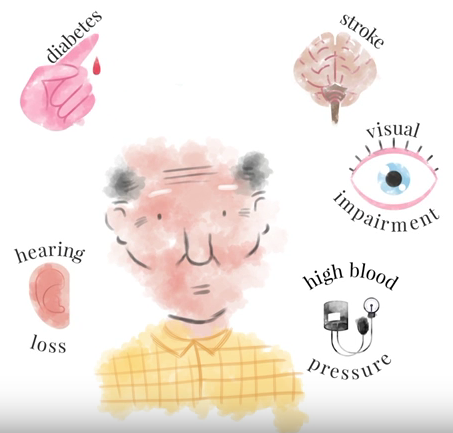Did you know that people living with dementia have, on average 4.6 other long-term serious health conditions, such as stroke, diabetes and sight problems?
Researchers in the University of Hertfordshire’s have been looking at ways to improve the organisation and delivery of health care services for people with dementia who also have other medical conditions.
The findings - from the CoDem study - suggest that people living with dementia may have poorer access to health services than those without dementia. The report’s authors have made a number of recommendations for ways in which the organisation and delivery of health care services for people living with dementia can be improved.
Findings from the study have informed a recent All Party Parliamentary Group on Dementia and Comorbidity - and led to further research around the management of diabetes in people with dementia.
Read More









